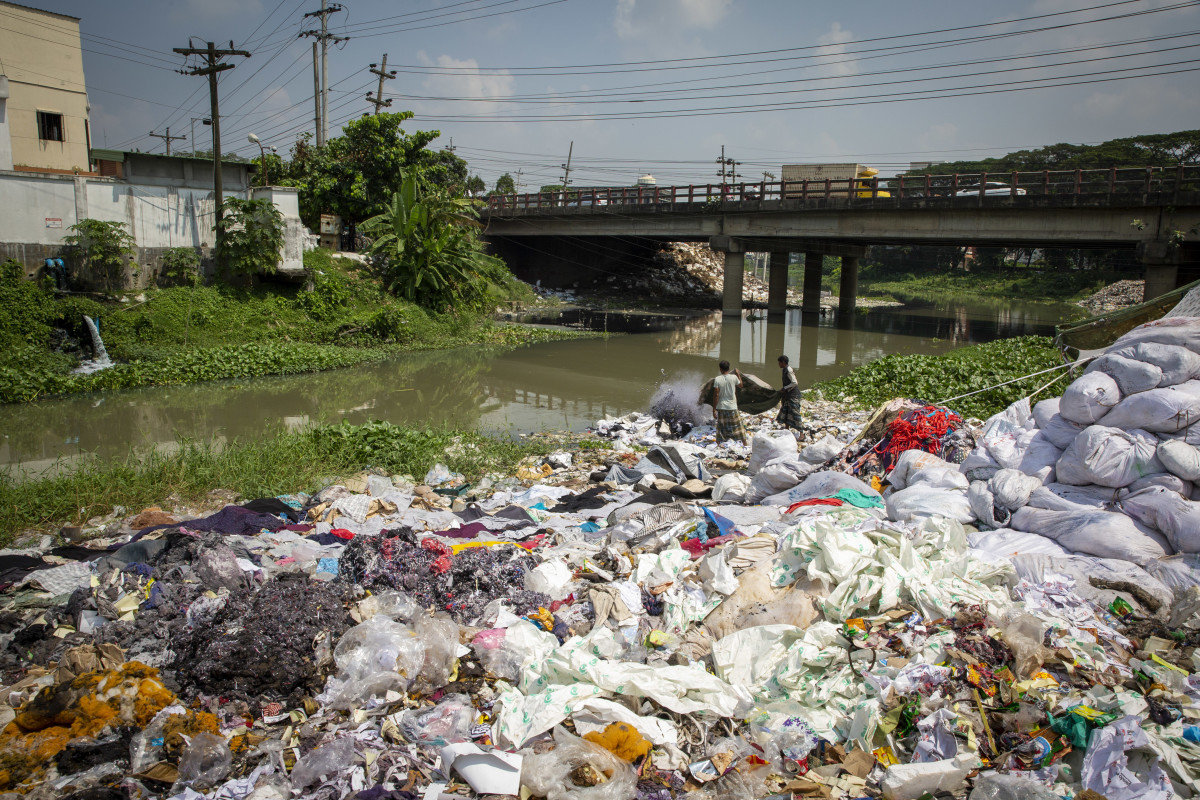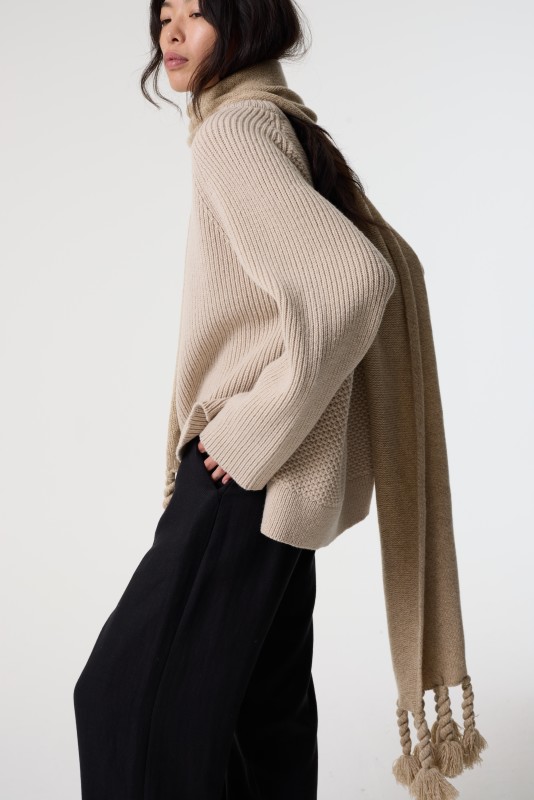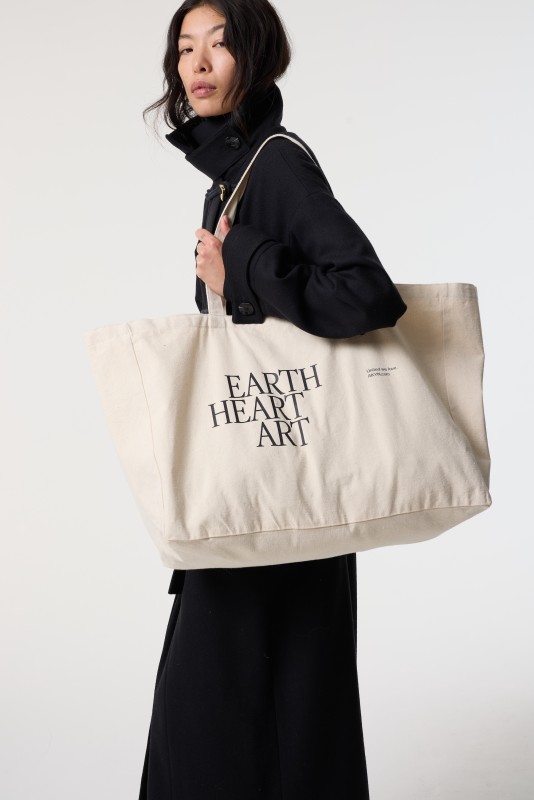Is the 'Clean Fashion' Movement Enough to Make Shoppers Care About Sustainability Again? – Latest Fashion Trends & Style Tips November 18, 2025 at 07:15PM
📰 Is the 'Clean Fashion' Movement Enough to Make Shoppers Care About Sustainability Again?
✨ Fashion Insights & Trends:
Recently, when fashion designer Amy Powney spoke to the retail team at a leading British department store, she asked whether their customers cared about sustainability. They said no.
"The climate conversation in fashion has just slipped away," she says. "The customers aren't seeking it or they're not being educated at the moment."
She puts this down to global instability, the cost of living crisis and a U.S. administration that endorses an attitude of profits before ethics.
At this point, we've had more than 50 years of activism when it comes to the clothes we put on our backs. We've had designers like Katherine Hamnett, Vivienne Westwood and Stella McCartney leading the way. We've had tragedies, like the collapse of Rana Plaza in 2012; we've had countless documentaries and books about the environmental impact of fast fashion; we've had series after series of global summits and debates and resolutions.
But despite decades of campaigns, we're still overconsuming. From 2019 to 2022, textile consumption in the EU increased from 17 kg to 19 kg per person on average. In the U.S., the fast fashion market is today valued at $45.97 billion, and is expected to reach $67.77 billion by 2032. Shein is now the second-most-popular shopping website (after Amazon) for Gen Z in America, and the controversial ultra-fast-fashion brand has just opened its first permanent store in Paris.
So what will it take to finally move the dial on our apparently insatiable appetite for cheap, quick and — more often than not — synthetic clothes? That's where the new "clean" fashion movement comes in, reframing the conversation from one about climate change to one about personal health.
"Clean" fashion is all about choosing clothing made from natural, organic materials: cotton, wool, hemp, bamboo and other naturally derived fibers, preferably undyed or dyed using non-toxic chemicals. It's also about avoiding synthetic materials, whether due to their effect on the environment, or on human health. According to Google Trends, the term "clean fashion" spiked in July 2025, with four times as many searches than in preceding years. It now has almost 40,000 posts on Instagram. Searches for the associated term "toxic clothing" have also doubled this year.

Photo: Andrew Aitchison / In pictures via Getty Images
What exactly is wrong with synthetic clothing, and why are people calling it "toxic"? Man-made materials like polyester, nylon and polyamide are created from fossil fuels, making them plastics. Wearing synthetics causes microplastics to shed, which are then ingested by humans – as much as a credit card-sized amount a week. Studies have linked microplastics in the body to cancer, heart attacks, reproductive problems and many other illnesses.
Synthetic clothing also contains "forever chemicals" known as PFAS (per- and polyfluoroalkyl substances) that provide things like waterproofing and stain repellency in clothing. PFAS have been dubbed "the next big scandal," and have been linked to decreased fertility, increased risk of some cancers, increased obesity levels, poor immunity, and disrupted hormone systems. Another chemical found in polyester clothing, BPA (bisphenol A), which can be absorbed through the skin, has been found to be an endocrine disruptor, mimicking estrogen and impacting the body's reproductive and metabolic processes.
Thanks in part to the growing "clean" fashion movement, awareness of the health implications of micro-plastics and forever chemicals is growing.
View the original article to see embedded media.
"We've seen viral social media moments about the effects of microplastics and how they've been found in blood, sperm, brain and lung tissue and reproductive systems," notes Dr. Brett Staniland (PhD), sustainable fashion consultant, content creator and model
"We've also had scandals around ultra-fast fashion brands, with toxic levels of chemicals being found in items from Shein and Temu as well as widely reported impacts on the plastic crisis, especially around our health and our environment," he continues. "As a result, more people are turning to natural fibers and finally understanding the quality, durability and performance of them versus plastic clothing."
Making people consider their clothing on a personal level — in terms of how it affects their own health — might be what finally makes a difference when it comes to our fashion consumption habits.
Fortunately, there's a burgeoning wave of brands using predominantly organic, natural materials: There's Organic Basics, Harvest & Mill, Mate the Label and H-O-R-S-E for essentials and activewear; Christy Dawn, Baukjen, Colorful Standard and Untouched World (the world's only fashion brand recognized by the UN for sustainability) for everyday wear; and high-fashion labels like Ninety Percent and Stella McCartney.


Photos: Courtesy of Akyn
This year, Powney, the former creative director of Mother of Pearl, launched Akyn, which only uses four natural fibers across its collections.
"We make organic clothes because we're trying to reverse climate change," she says. "We want to enrich the soil, remove pesticides and reduce microplastics. But it's quite hard to get people to emotionally relate to organic farming, and connect it to fashion. Because it's not about themselves, it's quite hard to get shoppers on board. I've been so desperate for the data to come out about what it's doing to your skin and your body, and then people will start changing [their attitude]."
She was relieved that, although the department store's customers weren't seen to care about sustainability, its retail team had noticed that they were increasingly asking about the fiber content of garments.
Consumer demand for natural fabrics does seem to be growing, agrees Esme Chiverton, Marketing Manager of New Zealand brand Untouched World.
Although the brand has focused on natural materials since it was founded 30 years ago, Chiverton points to a new Australian initiative, Seamless, which Untouched World has recently joined. It charges a levy for imported clothes, rewarding those made from single-source, natural fibers, and aims to create a circular system by 2030. "These kinds of initiatives appear to be growing, making it clear to us that there is more consumer appetite for natural fibers, a behavioral shift we're excited to see," she says.

Photo: Courtesy of Untouched World
American and European governments are slowly starting to catch up, too: California, New York, France and Denmark all recently introduced or proposed legislation banning or restricting the sale of clothing containing PFAS. Other enterprises encouraging brands to switch to using natural, organic fibers include DIRT, the soil charity set up by model Arizona Muse, which aims to "turn fashion into a climate solution;" and Textile Exchange, a global nonprofit that works to promote sustainable practices and reduce the environmental and social impacts of the textile industry.
However, while customers seem to be cottoning on to the benefits of natural fibers, most apparel brands have not yet caught up.
"What we've seen instead is brands making more of a statement about the natural fibers their clothes do contain, but on closer inspection, it's just a small percentage of a predominately synthetic garment," notes Chiverton. Not only can synthetic fibers carry the aforementioned health risks, but combining fossil fuel-based fibers with natural ones then makes a garment almost impossible to recycle with current technology. "This tells us there is consumer demand for natural fibers, but the same greenwashing that has plagued the industry applies here too."
Related: Is Textile-to-Textile Recycling Nearing Mainstream Adoption in Fashion?
Furthermore, the fashion industry in general seems to be sliding backwards when it comes to sustainability. The McKinsey State of Fashion 2025 report highlighted that fashion brands were scaling back their sustainability commitments, and delaying or dropping their net-zero targets.
Greenwashing is an ongoing problem on social media, too, points out Dr Staniland, and could impact the "clean" fashion movement.
"I am skeptical of influencers using it to their advantage and providing an excuse for their audience to replace their existing fast-fashion shopping habits, just with natural fibers," he says. "That level of consumption is unethical regardless of what the product is. We have to buy less and better."
The notion of "clean" can also be problematic. As it's an unregulated term, its use has long been associated with greenwashing in the beauty industry. The concept of "clean eating" has fallen out of favor, too, as it has been linked to reinforcing unhealthy ideas around weight and body image.

Photo: Frederic VIELCANET/Gamma-Rapho via Getty Images
But in fashion, the hope is that this movement could break through what's called the "value-action gap" — the discrepancy between sustainable intentions and lived behaviors among consumers. According to market research platform Kantar, 85% of people globally want to make better choices, but only 29% said they were actively changing their behavior.
However, other research shows that a growing interest in health is transforming our consumption habits. According to a recent McKinsey study, 82% of consumers now consider wellness a top priority, and the global market is worth $1.8 trillion. This means that our own self-interest in health and wellbeing has the potential to overcome our action paralysis when it comes to fast fashion.
Ultimately, the "clean" fashion movement may finally make us examine the clothing we buy with a new wellness lens. Whether that awareness can outlast the next fast-fashion trend, though, remains to be seen. Given the queues outside the new Shein store in Paris when it opened on Nov. 6, the public appetite for ultra-fast, potentially toxic clothing doesn't seem to have diminished significantly just yet. Though perhaps the store's headline-making opposition from environmental activists is a sign of change to come.
📌 Love fashion? Follow us for daily updates on our fashion blog! 🌟
🔹 #FashionTrends #StyleTips #OOTD #Is the 'Clean Fashion' Movement Enough to Make Shoppers Care About Sustainability Again?
Comments
Post a Comment